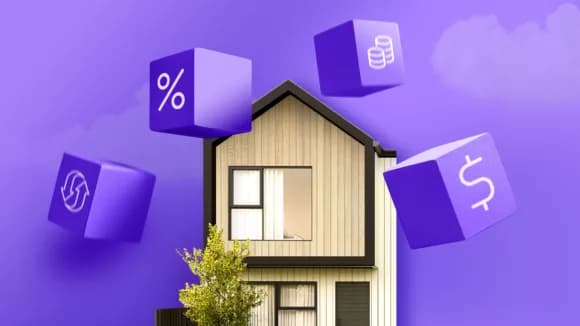
Tax
Do I have to pay tax under the bright line test in NZ?
Discover the latest NZ Bright Line Test changes and how they impact property investors.
Tax
8 min read

Author: Ed McKnight
Resident Economist, with a GradDipEcon and over five years at Opes Partners, is a trusted contributor to NZ Property Investor, Informed Investor, Stuff, Business Desk, and OneRoof.
Reviewed by: Marc Lemaire-Sicre
Chartered accountant, specialising in investment property structure and accounting.
If your property makes a (taxable) profit, you will pay income tax.
The amount you pay will depend on the tax rate, and this changes depending on who owns your property. Is it you, you and your partner, a trust or a company?
Property tax is ever-changing and tricky to navigate. So even confident investors should use a specialist property accountant.
In this article, you’ll learn the main taxes NZ property investors need to pay.
If you make a taxable profit, you need to pay income tax.
As of August 1, 2024 marginal tax rates for each dollar of income you earn are:
Here’s an example to give you a sense of why choosing the right tax structure is important.
Let’s say you earn $40,000 a year and your property earns a taxable profit of $5,000.
If you own your property in a trust, you will pay $1,950 in tax (39%).
If you owned it in your own name, you would be taxed at your marginal tax rate (17.5%).
That means you would pay $875 in tax ($5,000 x 17.5%).
How you choose to own your properties will determine how much tax you have to pay.
Interest deductibility isn’t in itself a new tax. It was a change in how your income tax is calculated. It meant that property investors couldn’t count all of their mortgage interest costs when calculating their tax.
In effect the government taxed you like you didn’t have a mortgage (despite the fact that you still had a mortgage to pay).
That made your property look way more profitable (even though it wasn’t). So you paid way more tax.
Despite all this, I’ll still list it as a separate tax anyway, although it’s important to recognise this tax will soon be gone.
Labour brought in these rules back in 2021, but National will fully phase them out for April 2025.
Until then, property investors can claim 80% of their interest expenses from April 1, 2024.
Now that National has reversed this, property investors will pay less tax and make more money.
For some investors, it’s a $176k a year difference.
Here’s an example of how big the difference can be.
When Charlie bought a 1970’s house in Auckland in 2022, he faced the harsh rules straight away. That’s because he bought an existing property after March 2021.
He had 0% deductibility. Now he’ll get 80% from April 2024, then 100% from April 2025.
That means Charlie will get around $15,000 in tax benefits in the first year since he has an $800k mortgage.
Based on my modelling, he’ll save $176,000 in tax over the next 15 years.
The bright-line test is New Zealand’s lite-version of a capital gains tax.
A capital gains tax is a blanket tax for property transactions. This is paid regardless of how long a property has been held for, or how much gain the owner has made.
The bright-line tax is similar, but it only applies to properties owned within 2 years, outside of your main home.
Here’s how you calculate how much tax you have to pay.
Let’s say you bought an investment property in June 2024 for $500,000. You then sell it 1 year later for $600,000.
Because you sold it within the 2-year bright-line period, you need to pay tax on the gain of $100,000 ($600k - $500k).
But in selling the property you also have to pay a real estate agent. Let’s call it $25,000. You might have also spent money renovating the property. Let’s call that $35,000. So you spent $60,000 in total to make that $100,000 gain.
So you only pay tax on $40,000. That’s $100k - $60k.
You pay this at your income tax rate. So if you owned this property in a trust your tax rate would be 39%.
That means you would pay $15,600 in tax.
So, it’s not a capital gains tax per se, but it still doesn’t mean all capital gains are tax free.
It’s important to know that the bright-line test doesn’t apply to:
Use the calculator below to find out if you need to pay tax under the Bright Line test and get an estimate of the amount you may owe.
Local council rates are paid directly to councils. They are different depending on where your property is in New Zealand.
We currently have 67 territorial authorities (councils) around the country. Each sets its rates – some are higher, some are lower.
But a lower rate doesn’t always mean you’re better off when it comes to tax.
It’s not the total amount of tax that matters, but how high those tax bills are compared to rents within the area.
For example, Grey District has the cheapest rates in dollar terms, at $1,739 per year. But rents are so low it will take 5.9 weeks of the average rent to pay them.
But if you invest in a rental property in Lower Hutt, yes the rates are higher but so are rents. In that area, it only takes 4.6 weeks of rent to pay off the rates.
And it’s good advice for property investors to research the data. This means factoring in all essential costs you’ll pay as an investor, not rates on their own.
There are two key ways investors can limit the amount of tax they have to pay.
Over time parts of rental properties become worn out and need replacing. These are called chattels. And that decrease in value is called depreciation.
If it’s not nailed down, glued in, or directly part of the building, it’s a chattel and you can depreciate it. This includes letter boxes, carpets, curtains, light fittings, appliances and even driveways.
Doing this the right way helps you save on tax.
Investors who depreciate the chattels of their rentals can minimise the amount of tax they pay.
For instance, if you own a property that has $50,000 of chattels, you could save as much as $16,500 in tax (over time). That assumes you’re on a 33% tax rate and depreciate the chattels correctly.
Investors shouldn’t pay more tax than they need to. Otherwise, you’re just tipping the tax man.
But, if you own your properties the wrong way, you will likely overpay.
How you choose to own your property impacts the tax you pay.
Usually, most investors will own their properties in:
You won’t realise how individual your situation is until you talk to an accountant. Let’s quickly go through these options:
This is the simplest option – it’s just owning the property yourself “in your own name”. That means you don’t use a trust or company.
There are no fees to set this up and no ongoing costs other than preparing and filing your income tax return.
But this also means profits and losses are on you. There is very little tax flexibility and unlimited legal liability.
So, if you get sued, the buck stops with you.
A trust allows you to own your property (and earn money off it) but not in your own name. This helps to protect the property from potential personal liability.
A trust is not technically a separate entity from yourself, but it is treated that way for some purposes … including tax.
This is why I generally recommend a trust for:
The owners of the LTC are the shareholders. All profits (and losses) of the LTC are taxed at the shareholders’ personal income tax rates.
So let’s say your marginal tax rate is 33%, and you own 60% of a company. Then, 60% of the profits are taxed at 33%.
The special tax rules that apply to LTCs are complex. This means compliance costs can be higher than those of some other structures.
I usually recommend an LTC for investors who:
Tax rules for property investors are complicated and they’re changing all the time.
So what was a good idea 5 years ago might not work today.
It’s a good idea to talk to a property accountant to help you better understand those rules.
It’s also important to treat your property investing as a business.
Think about it: Most Auckland properties are worth over a million dollars. So if you have 4 properties, you might have $3-4 million worth of debt. You’re running a decent-sized business.
So it’s a good idea, from a conceptual mindset, to treat your property investment like a business. Set up a good structure, keep good records, and keep a good accountant who specialises in what you need.
If you need a recommendation, you might like to speak to me or my team at Opes Accounting.
Resident Economist, with a GradDipEcon and over five years at Opes Partners, is a trusted contributor to NZ Property Investor, Informed Investor, Stuff, Business Desk, and OneRoof.
Ed, our Resident Economist, is equipped with a GradDipEcon, a GradCertStratMgmt, BMus, and over five years of experience as Opes Partners' economist. His expertise in economics has led him to contribute articles to reputable publications like NZ Property Investor, Informed Investor, OneRoof, Stuff, and Business Desk. You might have also seen him share his insights on television programs such as The Project and Breakfast.
This article is for your general information. It’s not financial advice. See here for details about our Financial Advice Provider Disclosure. So Opes isn’t telling you what to do with your own money.
We’ve made every effort to make sure the information is accurate. But we occasionally get the odd fact wrong. Make sure you do your own research or talk to a financial adviser before making any investment decisions.
You might like to use us or another financial adviser